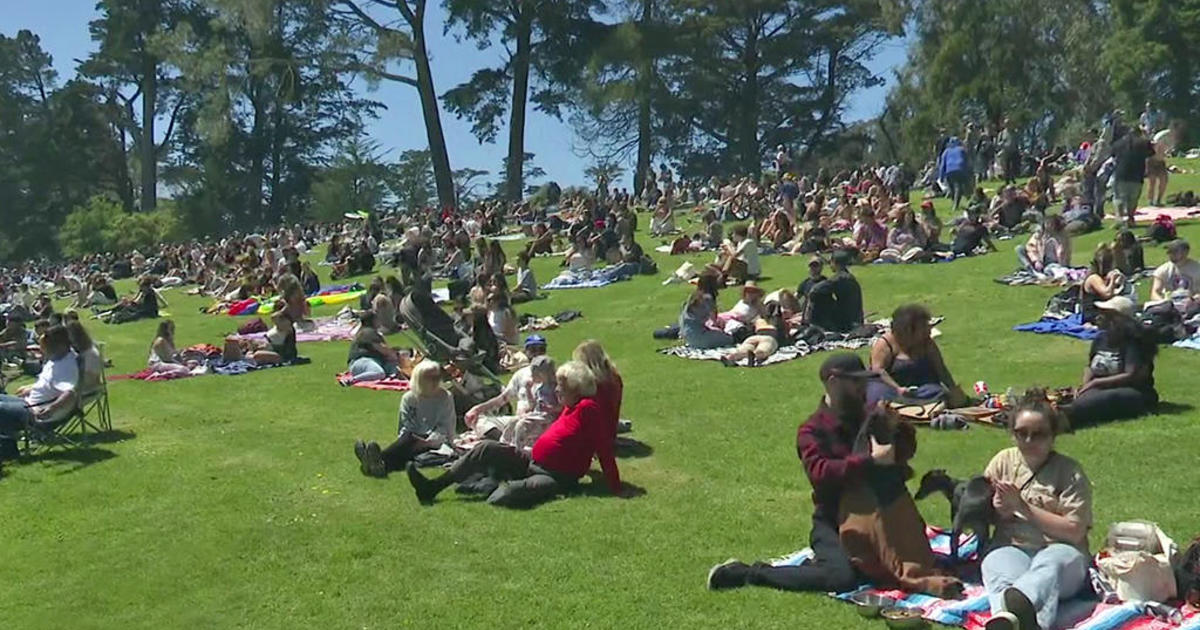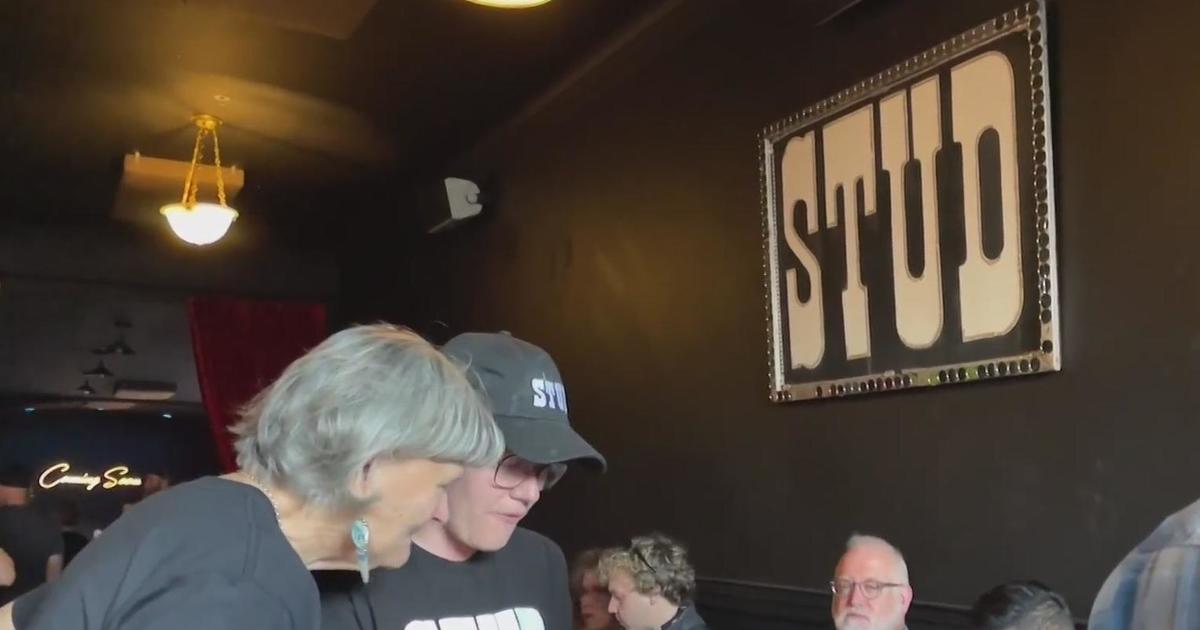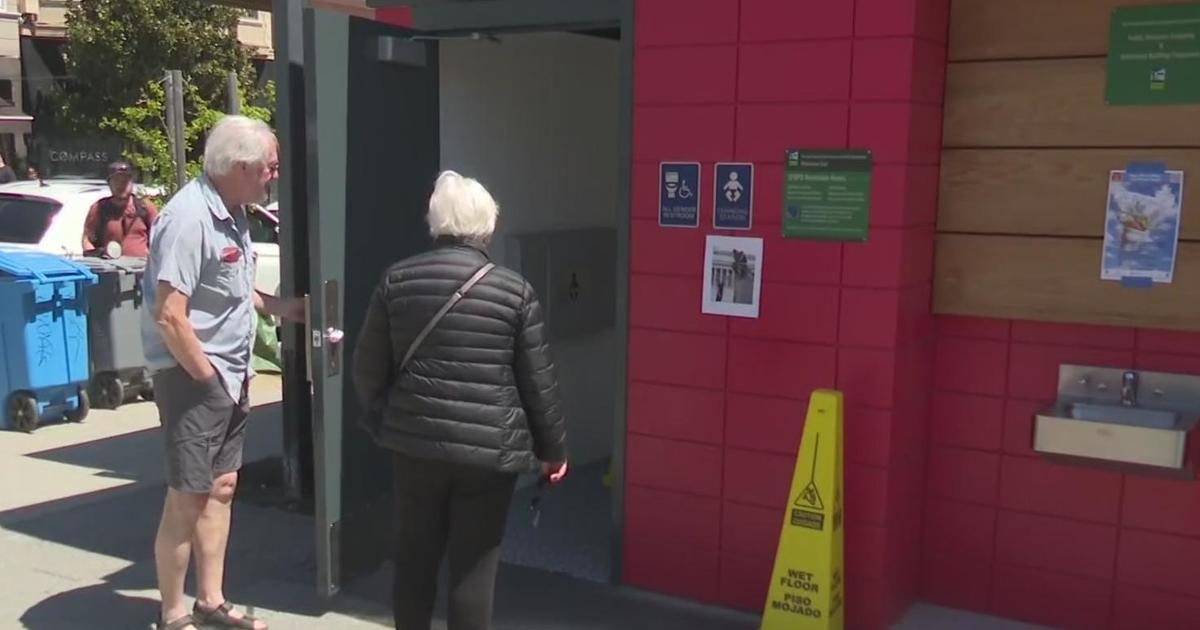COVID Safety: Oakland Passes $5 Raise, SJ City Council Weighs 'Hero Pay' For Grocery Workers
SAN JOSE (KPIX 5) -- Oakland city council members voted unanimously Tuesday night to force large grocery stores to pay its employees hazard pay until the end of the pandemic.
"We are putting our health at risk," said Tamara Perine.
She has worked for Safeway in Oakland for 29 years, and was excited to hear that she and 2,000 other eligible grocery workers in Oakland will now get an extra $5 per hour effective immediately.
"People are coming in, stealing and robbing, we have folks who don't want to wear a mask, they want to swear at us, curse at us," Perine said.
The emergency ordinance in Oakland impacts establishments with at least 500 workers nationwide.
San Jose city council members also discussed a similar proposal during Tuesday evening that, if passed, would be an extra $3 an hour for grocery workers.
Under the proposal, it would expire 120 days after it's adopted.
Grocery stores are one of the essential businesses that have never closed during the pandemic shutdowns. Workers are still showing up every day to keep shelves stocked.
"This is a very important way to lift some folks up who are really giving of themselves to benefit us," said San Jose City Councilmember Sergio Jimenez.
He proposed paying grocery store workers $3 an hour in hazard pay. He says the average grocery store worker in San Jose right now makes $18 an hour, so if this proposal passes, workers would make an average of $21 an hour.
"That isn't a massive jump. These people are not going out and buying boats and new vehicles because of this," said Jimenez.
San Jose Vice-Mayor Chappie Jones, who had to recuse himself from the discussion because he owns Amazon stock, said he was concerned about the potential impact the increase in pay would have on employers.
"Will these wage increases impact the number of employees these stores are going to have, are they going to reduce hours," Jones said.
"Prices will increase," Rose said. "There's only so many levers you can pull to try and make up for that kind of labor cost."
But critics, including city leaders, argue that grocery stores have been making a profit while other industries crumble in the pandemic.
"Earlier in the pandemic we were seeing big increases. We were having a hard time keeping shelves stocked at that point, but that was March and April," Rose said. "We've seen shopping patterns normalize and kind of go back to pre-pandemic."
Nate Rose with the California Grocers Association, which represents most grocery store owners in the state, said hazard pay means retailers would make up for the loss by increasing food prices. He said families could see an increase of $400 a year in groceries under a $5 per hour mandate. He explained that profit margins are narrow for grocery stores.
"Prices will increase," Rose said. "There's only so many levers you can pull to try and make up for that kind of labor cost."
The California Grocers Association released a statement regarding the possible impact of the move by Oakland officials.
"Extra pay mandates will have severe unintended consequences on not only grocers, but on their workers and their customers," said California Grocers Association President and CEO Ron Fong. "A $5/hour extra pay mandate amounts to a 28 percent increase in labor costs. That's huge. Grocers will not be able to absorb those costs and negative repercussions are unavoidable."
If approved in San Jose, the hazard pay mandate would only apply to workers at large chain grocery stores, not smaller local markets.
Other San Jose city council members argued this kind of a pay bump could have unintended consequences.
"I'm just really worried about people losing hours, losing their jobs. I'm worried about stores closing," said Councilmember Dev Davis.
That's exactly what happened in Long Beach where two grocery stores -- Ralphs and Food for Less -- announced they'd be closing after the City of Long Beach passed a $4 per hour hazard pay ordinance there.
"We don't know what the outcome is going to be and I'm just worried about more people losing their jobs," said Davis.
Perine has a much different story to tell, however.
"The stores are making a lot of money, because people are coming in droves," she said. "We're just now putting Lysol on our shelves, yesterday."
She said that she's lost co-workers to COVID-19, and that she also contracted the virus recently. But she survived, and went right back to work. The difference now is that she will get it hazard pay.
"I know that we are well-deserving of it," Perine said. "I know there are some folks who think differently."
If San Jose does approve the extra pay at the Tuesday night meeting, it would go into effect immediately and then would be reassessed in 120 days.



